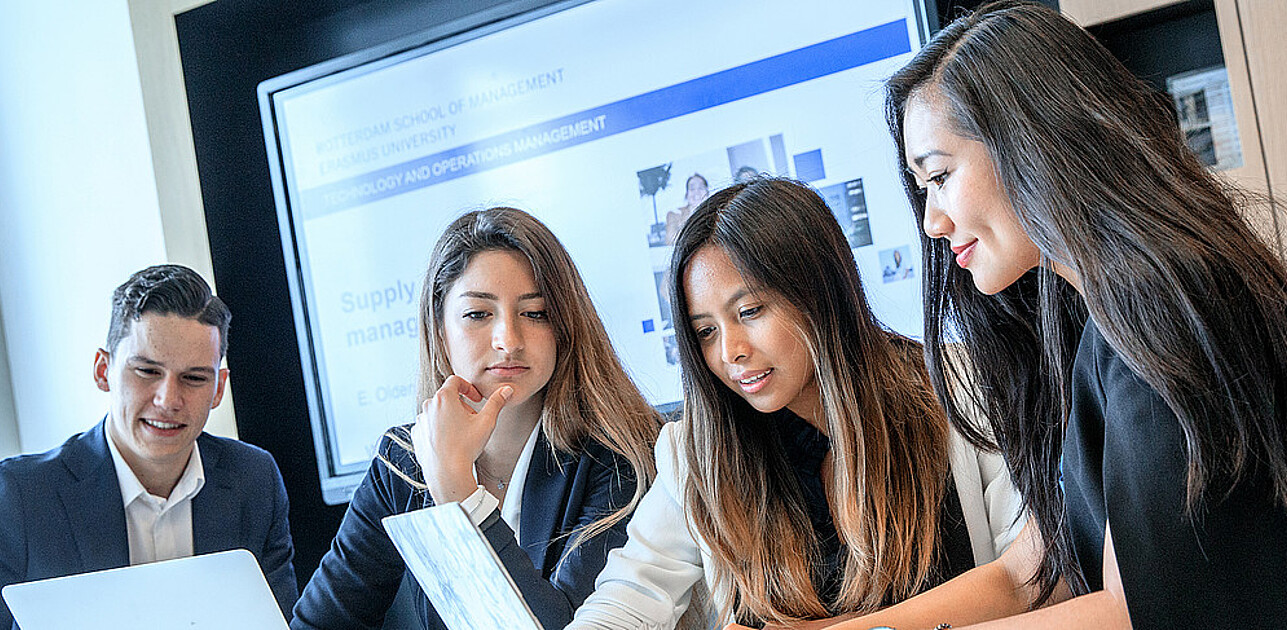

What are the tradeoffs between costs, liability and environmental impact in supply chains? How can you implement responsible work practices in logistics?
There’s a very close connection between the latest academic knowledge and real-world business practice in RSM’s MSc Supply Chain Management. You’ll learn the latest theories and technologies in class from world-class researchers and academics, then investigate how supply chain knowledge works in practice. You’ll meet supply chain professionals in class, and visit companies during field trips, honours class consultancy projects, and thesis research internships. Here, you’re in the middle of all the action: the Port of Rotterdam and other international supply chain hubs are right on your doorstep.
This programme is offered by Erasmus University Rotterdam. For more information about the legal structure of Rotterdam School of Management, Erasmus University, visit this page.
It's quite practice-oriented, so I feel I am learning new skills every day from the real business world and from company visits and guest lectures; it’s a great way to integrate theories and practices. I enjoy the nice vibe, my smart classmates and the helpful professors, but most of all I enjoy the way the courses are designed. Our courses combine lectures and workshops in creative and interesting ways. For example, we visit a real warehouse after learning about warehouse assessing; and we go to a logistics industry fair to find innovative solutions. I feel that professors and staff work very hard to teach us as much as possible and efficiently. If you are interested in logistics or supply chain, and want to learn data analysis and elementary programming for the real business world, then this is for you! It’s a great starting point for a career in logistics, in a supply chain department or a consultancy role in these fields.
Chenzhi Hu (MSc Supply Chain Management 2020)
